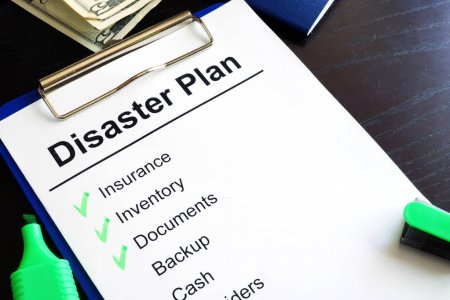While it’s not always possible to prevent an emergency, you can reduce the likelihood that an emergency will become a disaster by being prepared. Here are some tips to do just that.
- Store your documents in a waterproof and fireproof safe that is convenient to access.
- Make copies of your important documents—store paper copies in a different location than the originals. If making digital copies, store them in the cloud and/or on a portable storage device
- Make an inventory of your documents—critical documents to protect include identity documents, court orders, property records, financial and legal documents, and medical records.
In the event that you suffer a loss to your records, the IRS has helpful tips for reconstructing them.
- For tax records, get free tax return transcripts instantly by visiting the Get Transcript tool on IRS.gov.
- To request a copy of past returns by mail, file IRS Form 4506 and (if applicable) write the appropriate disaster designation, such as “HURRICANE HARVEY” in red letters across the top of the forms to expedite processing and waive the normal fee.
- For personal residence and real estate, take photos or videos as soon after the disaster as possible. Contact the title company, escrow company, or bank that handled the purchase of your home to get copies of documents. Establish a basis or fair market value of the home by reviewing comparable sales within the same neighborhood. Review insurance policies, as they will establish a baseline figure for replacement value. If improvements were made to the home, reach out to the contractors who did the work to see if records are available. For inherited property, check court records for probate values. If the property was held in a trust, contact the attorney who handled the trust.
- To establish the current fair market value of vehicles, research online tools such as Kelley Blue Book. If the vehicle was purchased from a dealership, ask for a copy of the purchase contract.
- To catalogue lost items and values of personal property, look on mobile phones for pictures that might show items in question. Check websites that can help establish the cost and fair market value. If items were purchased with a credit or debit card, contact your credit card company or bank to request past statements. When no photos or videos exist, draw a floorplan showing where each piece of furniture was placed and take the time to list memorabilia contained on shelves and tables.
If you have been a victim of a disaster, you have far more important things to worry about than your taxes. Let us help you take that burden away so you can stay in compliance with the IRS and get on with more important things in life.

